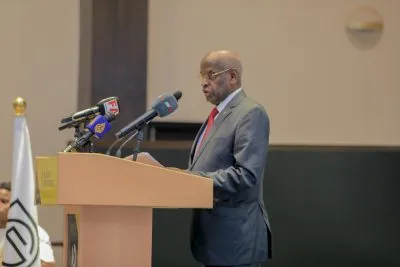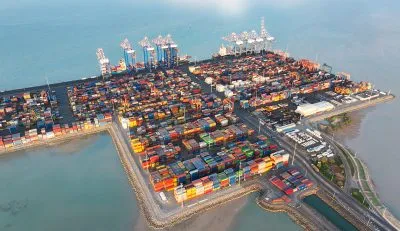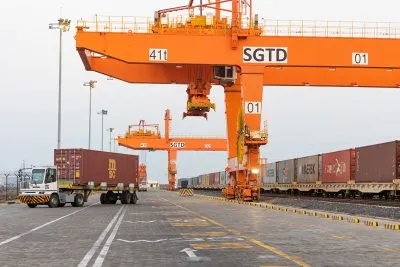Mariam Hamadou Ali’s career began at the Ministry of Economy and Finance, which she joined in 1997. “I think I was the only female manager at the time,” she recalls. “I worked in a number of exciting areas, which included managing the portfolio of state-owned companies, drawing up the ‘Vision 2035’ plan, and working in the Department of the Economy, Planning and Macroeconomic Analysis. Prior to this, I studied at the University of Fez in Morocco and then, a few years later, in France, where I obtained a master’s degree in management and economic policy.”
Since her appointment to the Ministry of Digital Economy and Innovation, the Minister has been at the forefront of Djibouti’s digital transformation, spearheading ambitious initiatives such as the national ‘Smart Nation’ strategy, which includes 150 projects valued at $850 million, aimed at transforming the country’s economy and society in the digital age.
Her leadership has fostered a significant advance in digital payment technologies in the country, and laid the foundations for a more efficient administration. “Digital technology is a crucial lever for socio-economic development,” she says, citing progress in terms of internet connectivity, which has risen from 6% in 2012 to 61% in 2022.
Today, the digital arena contributes 8% of Djibouti’s GDP. This figure includes sectors such as submarine cable infrastructure, telecommunications, fintech and e-commerce. “A share that is set to grow,” says Ali, who recently travelled to Marseille, France, to draw inspiration from the city, which in just a few years has become a hub for cable networks in Europe.
“We have benchmarked, studied and visited many countries, and Djibouti could draw inspiration from cities like Singapore and Marseille, which have succeeded in building a genuine digital economy by focusing on the deployment of data centres and cutting-edge digital infrastructure,” she says.
The Minister also sees ports playing an important role in the digital transition. “Djibouti’s ports could host data centres and cloud services,” she says. “These would help to diversify the local economy and create jobs in the ICT sector.” In any case, the Minister is delighted that Djibouti has become a major hub in the global undersea communications network, with twelve undersea cables linking the country to various continents.
Ali, who is also in charge of the Centre for Leadership and Entrepreneurship, is pleased to note that increasingly, there are entrepreneurs from all walks of life. “Ten years ago, there weren’t as many women in positions of responsibility,” she adds. “The First Lady, Kadra Mahamoud Haïd, has been a very inspiring figure for the whole population of the country.”
As for the future, the Minister is optimistic. “In the next 10 to 15 years, I see Djibouti evolving towards a dynamic and prosperous digital future to ensure sustainable and inclusive economic growth,” she says.
Want to continue reading? Subscribe today.
You've read all your free articles for this month! Subscribe now to enjoy full access to our content.
Digital Monthly
£8.00 / month
Receive full unlimited access to our articles, opinions, podcasts and more.
Digital Yearly
£70.00 / year
Our best value offer - save £26 and gain access to all of our digital content for an entire year!

 Sign in with Google
Sign in with Google 



